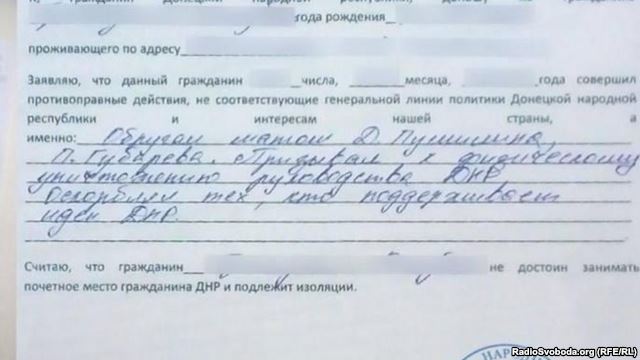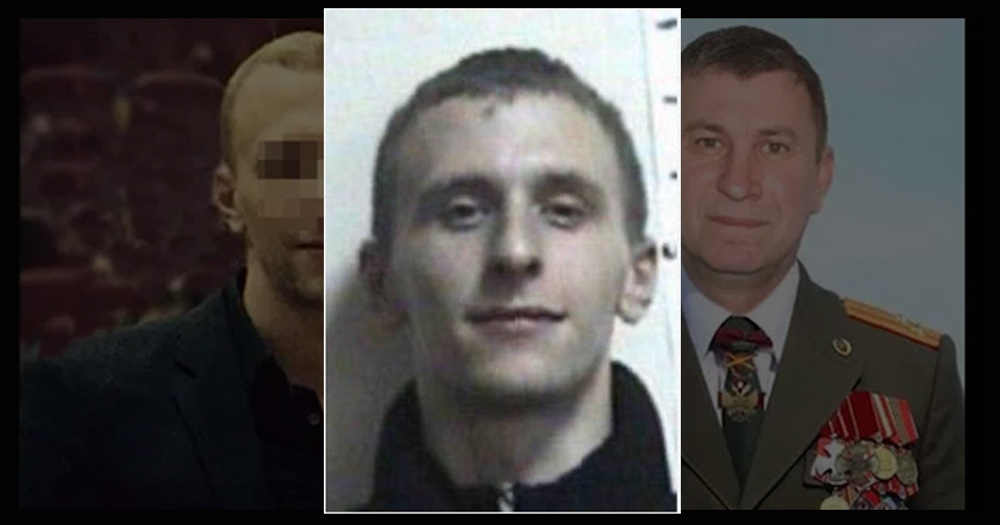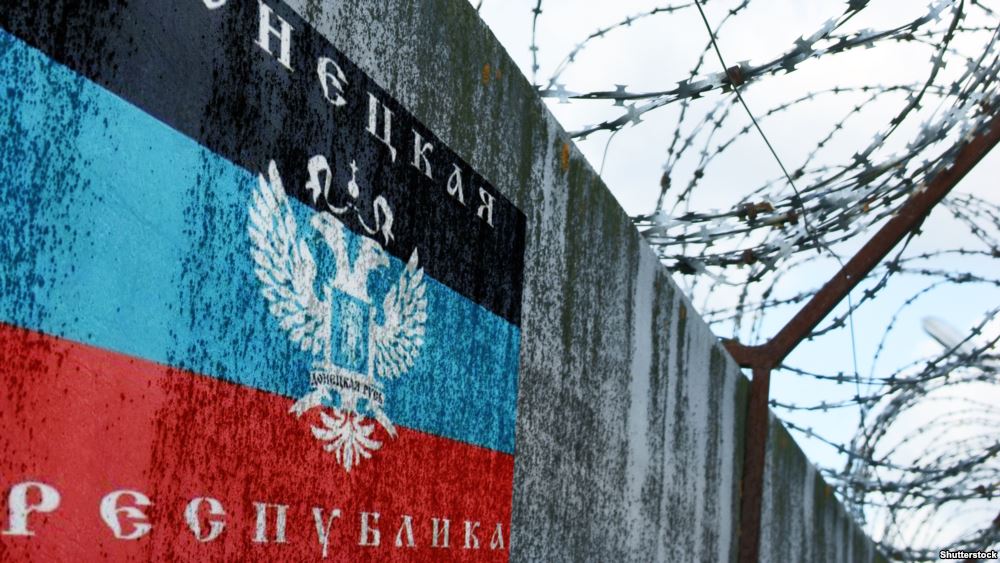Almost one-third of the population in Donbas supported the separatists, according to a study conducted by civil organizations Donetsk Memorial and the Luhansk Civil Committee for the Protection of Constitutional Rights and Freedoms of Citizens.
Since the beginning, the separatists acted with the support of the local government and the lack of action on part of law enforcement in Donetsk and Luhansk oblasts, according to the human rights activists in the eastern regions. According to the head of Donetsk Memorial, Oleksandr Bukalov, back in the winter the government supported those who had called for the dispersal of Maidan.
“The initiators included the secretary of the city council of Donetsk, Mr. Bugachov. His actions are clearly qualified by some articles of the Criminal Code,” Bukalov notes.
He also mentioned that even after the ‘DNR’ and ‘LNR’ were declared criminal organizations, the police in Donetsk did nothing to arrest the radicals.
“For several months they had been in the Oblast Donetsk Administration on the territory of the Voroshilovsky district of Donetsk city. The head of the district department did nothing to impede their activity,” emphasizes the head of Donetsk Memorial.
The activist insists that the new government is also not doing enough to establish the fact that they are guilty of criminal activity.
Separatism turned out to be good bait
However, the civil activists said that separatism had taken advantage of the weaknesses characteristic of the population in Donbas: black markets, economic feudalism and the Soviet mentality of the intelligentsia.
“Black markets cannot exists without corrupt state institutions who feed on its account. There are about three thousand illegal coal mines in Donbas alone. They do not pay any taxes, however, the workers there were turned into slaves. A poor and dependent person always votes for the boss, or for the one they point out,” says Mykola Kozyrev, head of the Luhansk Civil Committee for the Protection of Constitutional Rights and Freedoms of Citizens.
According to the activists, there would have been no war without Russia’s involvement – everything would have ended with a regular conflict organized by the local elites to haggle with the government in Kyiv. On its part, Kyiv could also make Donbas more Ukrainian, but not in the ideological, but the economic, sphere.
“They could have done more, but in the economic sphere in particular. They should have transferred the rent for the usage of natural resources to the budget, and not people’s pockets. In the end, the development of culture is the money given to the development of culture,” Mr. Kozyrev thinks.
The central government could have been more active in fighting for the rights of Donbas citizens
The Luhansk-based activists was supported by journalist Liudmyla Sokolenko, who had worked in Luhansk oblast before the war, but who was then forced to leave her home.
“There has never been a Ukrainian government in Luhansk and, I think, in Donetsk oblast as well – there was an oligarchical government. Kyiv was never interested in how people live here, they were only interested in their paying taxes,” she emphasized. According to the journalist, the central government turned a blind eye to what oligarchs from the previous government like Yefremov or Akhmetov had been doing in the east.
Human rights activists conclude, unfortunately, that even if the territories are freed, the conflict will last for many years – it will be very difficult to break this kind of mentality.





